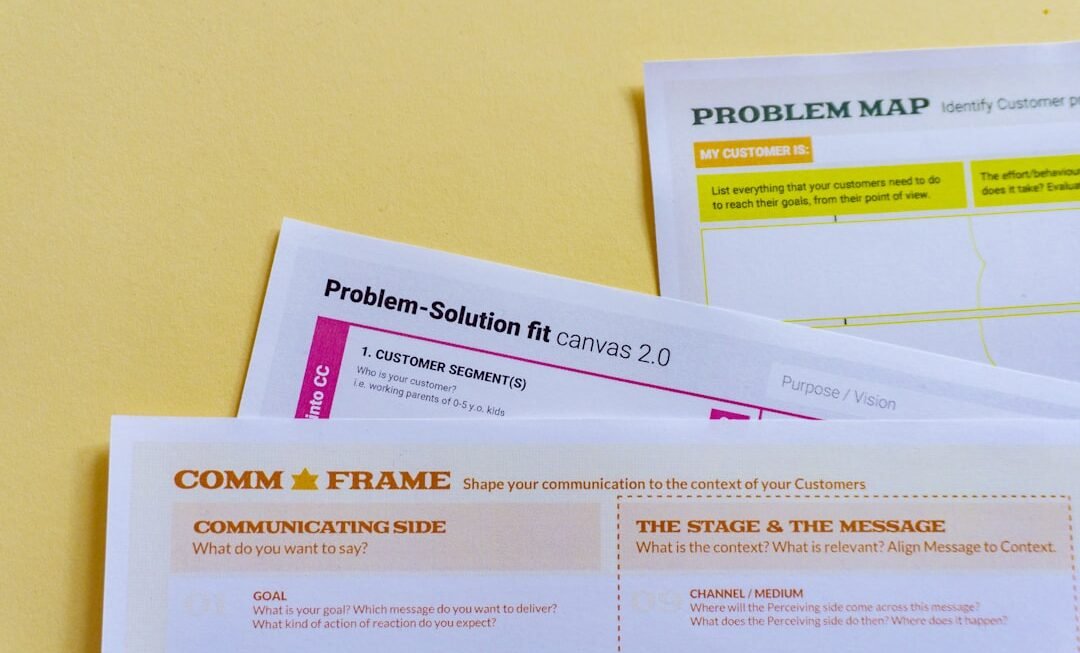In the rapidly evolving landscape of digital marketing, email remains a cornerstone for businesses seeking to engage with their audience. However, the sheer volume of emails sent daily necessitates a more sophisticated approach to capture attention and drive conversions. Enter AI-enabled email marketing automation, a transformative technology that leverages artificial intelligence to streamline processes, enhance personalization, and optimize campaign performance.
This innovative approach not only saves time but also allows marketers to deliver highly relevant content to their subscribers, thereby increasing engagement rates and fostering customer loyalty. AI-enabled email marketing automation utilizes algorithms and data analytics to analyze user behavior, preferences, and engagement patterns. By harnessing this data, businesses can create tailored email campaigns that resonate with individual recipients.
This level of personalization was previously unattainable at scale, but with AI, marketers can now segment their audiences more effectively and deliver content that aligns with each subscriber’s unique interests and needs. As a result, companies can expect improved open rates, click-through rates, and ultimately, higher conversion rates.
Key Takeaways
- AI-enabled email marketing automation is revolutionizing the way businesses engage with their customers and prospects.
- AI enhances email marketing efficiency by automating repetitive tasks and personalization through data analysis and predictive analytics.
- Machine learning plays a crucial role in email marketing automation by enabling algorithms to learn from data and make intelligent decisions.
- Using AI for email marketing automation offers benefits such as improved targeting, increased engagement, and better ROI.
- AI-enabled email marketing platforms offer key features and capabilities such as predictive analytics, dynamic content, and automated A/B testing.
How AI Enhances Email Marketing Efficiency and Personalization
The integration of AI into email marketing significantly enhances efficiency by automating repetitive tasks that would otherwise consume valuable time and resources. For instance, AI can automate the process of list segmentation, allowing marketers to categorize their audience based on various criteria such as demographics, past purchase behavior, and engagement history. This automation not only reduces the manual workload but also ensures that the right message reaches the right audience at the right time.
Moreover, AI-driven personalization goes beyond simply addressing recipients by their first names. Advanced algorithms analyze vast amounts of data to predict what content will resonate with each subscriber. For example, if a customer frequently engages with emails about fitness products, AI can prioritize sending them similar content or recommend related items based on their browsing history.
This level of personalization fosters a deeper connection between brands and consumers, as recipients feel understood and valued, leading to increased loyalty and repeat business.
The Role of Machine Learning in Email Marketing Automation
Machine learning, a subset of AI, plays a pivotal role in enhancing email marketing automation by enabling systems to learn from data patterns and improve over time without explicit programming. By analyzing historical campaign performance data, machine learning algorithms can identify which subject lines, send times, and content types yield the best results for specific audience segments. This continuous learning process allows marketers to refine their strategies based on real-time insights rather than relying solely on past experiences or intuition.
For instance, machine learning can optimize send times by analyzing when individual subscribers are most likely to open their emails. By sending messages at these optimal times, businesses can significantly increase open rates and engagement. Additionally, machine learning can help in A/B testing by automatically determining which variations of an email perform better and adjusting future campaigns accordingly.
This data-driven approach not only enhances the effectiveness of email marketing efforts but also empowers marketers to make informed decisions that drive results.
Benefits of Using AI for Email Marketing Automation
The benefits of incorporating AI into email marketing automation are manifold. One of the most significant advantages is the ability to scale personalization efforts without sacrificing quality. Traditional methods of personalizing emails often require extensive manual input and can be time-consuming.
However, with AI, businesses can automate this process at scale, ensuring that every subscriber receives content tailored to their preferences and behaviors. Another key benefit is improved customer insights. AI tools can analyze customer interactions across multiple touchpoints, providing marketers with a comprehensive view of each subscriber’s journey.
This holistic understanding enables businesses to craft more relevant messages that align with customer needs at various stages of the buying cycle. Furthermore, AI can predict future behaviors based on past interactions, allowing marketers to proactively address customer needs and enhance the overall customer experience.
Key Features and Capabilities of AI-Enabled Email Marketing Platforms
AI-enabled email marketing platforms come equipped with a range of features designed to enhance campaign effectiveness and streamline processes. One such feature is predictive analytics, which uses historical data to forecast future customer behavior. This capability allows marketers to anticipate when a subscriber is likely to make a purchase or engage with content, enabling timely and relevant outreach.
Another essential feature is dynamic content generation. AI can automatically create personalized content blocks within emails based on individual subscriber data. For example, if a subscriber has shown interest in travel-related products, the platform can dynamically insert travel deals or destination recommendations into their emails.
This level of customization not only increases engagement but also drives conversions by presenting subscribers with offers that align with their interests. Additionally, advanced reporting and analytics tools provide marketers with actionable insights into campaign performance. These tools can track metrics such as open rates, click-through rates, and conversion rates in real-time, allowing marketers to make data-driven adjustments on the fly.
By leveraging these capabilities, businesses can continuously optimize their email marketing strategies for maximum impact.
Best Practices for Implementing AI-Enabled Email Marketing Automation
To successfully implement AI-enabled email marketing automation, businesses should adhere to several best practices that ensure optimal results. First and foremost is the importance of data quality. Accurate and comprehensive data is the foundation upon which effective AI algorithms operate.
Marketers should invest in robust data collection methods and regularly clean their databases to eliminate inaccuracies that could hinder campaign performance. Segmentation is another critical aspect of successful implementation. Marketers should leverage AI’s capabilities to create highly targeted segments based on various criteria such as behavior, demographics, and purchase history.
By sending tailored messages to these segments, businesses can significantly enhance engagement rates and drive conversions. Furthermore, continuous testing and optimization are essential for maximizing the effectiveness of AI-driven campaigns. Marketers should regularly conduct A/B tests on subject lines, content formats, and send times to identify what resonates best with their audience.
By analyzing the results and iterating on their strategies based on data-driven insights, businesses can refine their approach over time.
Overcoming Challenges in AI-Enabled Email Marketing Automation
While the benefits of AI-enabled email marketing automation are substantial, several challenges may arise during implementation. One common hurdle is the initial investment required for advanced AI tools and technologies. Businesses must weigh the costs against potential returns and consider how these tools will integrate with existing systems.
Another challenge lies in ensuring data privacy and compliance with regulations such as GDPR or CCPAs AI relies heavily on data collection and analysis, marketers must prioritize transparency and obtain explicit consent from subscribers before utilizing their data for personalized campaigns. Failure to comply with these regulations can result in significant penalties and damage to brand reputation. Additionally, there may be resistance from team members who are accustomed to traditional marketing methods.
To overcome this challenge, organizations should invest in training programs that educate staff on the benefits of AI-driven strategies and how to leverage these tools effectively. By fostering a culture of innovation and adaptability within the marketing team, businesses can successfully navigate the transition to AI-enabled email marketing automation.
Examples of Successful AI-Enabled Email Marketing Campaigns
Several brands have successfully harnessed the power of AI-enabled email marketing automation to achieve remarkable results. For instance, Netflix employs sophisticated algorithms to analyze viewer preferences and behaviors. By sending personalized recommendations based on users’ viewing history through targeted emails, Netflix has significantly increased user engagement and retention rates.
Another notable example is Amazon’s use of AI for personalized product recommendations in their email campaigns. By analyzing past purchases and browsing behavior, Amazon sends tailored emails featuring products that align with individual customers’ interests. This strategy not only drives sales but also enhances customer satisfaction by presenting relevant offers.
Additionally, clothing retailer Stitch Fix utilizes AI algorithms to curate personalized clothing selections for its subscribers based on their style preferences and feedback from previous purchases. The company sends targeted emails showcasing these curated selections, resulting in higher conversion rates as customers receive items that match their tastes.
Integrating AI-Enabled Email Marketing Automation with Other Marketing Strategies
To maximize the effectiveness of AI-enabled email marketing automation, businesses should consider integrating it with other marketing strategies for a cohesive approach. For instance, combining social media advertising with email campaigns can create a powerful synergy that enhances brand visibility and engagement across multiple channels. By utilizing retargeting ads on social media platforms alongside personalized email campaigns, businesses can reinforce their messaging and increase the likelihood of conversions.
For example, if a user engages with a product ad on social media but does not complete a purchase, sending a follow-up email featuring that product along with a special offer can encourage them to finalize their transaction. Moreover, integrating customer relationship management (CRM) systems with AI-enabled email marketing platforms allows for a more comprehensive view of customer interactions across all touchpoints. This integration enables marketers to craft more relevant messages based on a holistic understanding of each customer’s journey, ultimately leading to improved engagement and loyalty.
The Future of AI-Enabled Email Marketing Automation
As technology continues to advance at an unprecedented pace, the future of AI-enabled email marketing automation holds immense potential for further innovation and enhancement. One emerging trend is the increased use of natural language processing (NLP) capabilities within email marketing platforms. NLP allows machines to understand human language more effectively, enabling even more sophisticated personalization techniques that resonate with recipients on a deeper level.
Additionally, as consumer expectations evolve towards hyper-personalization, businesses will need to leverage AI’s capabilities to deliver increasingly tailored experiences across all channels. This may involve integrating voice search optimization into email campaigns or utilizing chatbots for real-time customer interactions that complement email outreach. Furthermore, advancements in predictive analytics will enable marketers to anticipate customer needs even before they arise.
By analyzing vast datasets from various sources—such as social media interactions or website behavior—AI will empower businesses to proactively address customer pain points and deliver solutions through targeted email campaigns.
Embracing AI for Enhanced Email Marketing Results
The integration of AI into email marketing automation represents a paradigm shift in how businesses engage with their audiences. By harnessing the power of artificial intelligence and machine learning technologies, marketers can enhance efficiency, improve personalization efforts, and drive better results from their campaigns. As organizations continue to embrace these innovations and adapt their strategies accordingly, they will be well-positioned to thrive in an increasingly competitive digital landscape where customer expectations are continually evolving.
Embracing AI is not just an option; it is becoming an essential component for achieving sustained success in email marketing.












